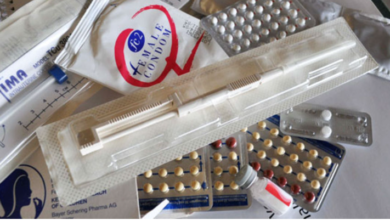HIV/AIDS spot areas in Masindi district named
‘’People should mind and think about their lives; they should know their status and get tested,'' he advised.

By Innocent Atuganyira
Masindi: According to the research conducted recently, Chongoyoma, Alimugonza villages in Pakanyi Sub County, and Kinyara in Kabango Town Council are the major spot areas with the highest cases of HIV/AIDS in Masindi district.
This was disclosed by Jino Abiriga, the acting district health officer for Masindi, during the commemoration of the belated World AIDS Day for Masindi district held on Tuesday at the Chongoyoma trading center in Pakanyi Sub County.
According to Abiriga, they decided to commemorate the day at the Chongoyoma trading center since it’s on alert for HIV cases. ‘’In most cases, in the evening, I get children aged between 10 and 15 in pairs along the roadside, and this has contributed to HIV cases in this area,’’ he said.
The health expert also disclosed that there are about 15,000 people in Masindi district living with HIV, and of those 1,253 are children, 4,000 are men, and women are the highest, with over 7,000 infected with the deadly virus.
Abiriga noted that currently the cases in the country stand at 1.5 million people, of which 59% are women, and of those, 8% are new infections. He therefore cautioned the public to get tested for HIV/AIDS, know their status, and advocate for the eradication of the virus.
‘’People should mind and think about their lives; they should know their status and get tested. In most cases, the virus is transmitted through sexual intercourse and from mother to child through breastfeeding,’’ he said.
The district health officer stressed that the cases are on the rise due to the relaxation and thus asked the community to lead in the fight against the deadly virus. Abiriga also called for collective responsibility amongst leaders to ensure that AIDs comes to an end by 2030 which is a national target.

Ms. Hope Murungi, the Coordinator of Civil Society and Private Sector at the Uganda AIDS Commission, said Masindi is one of the leading districts in the fight against HIV, and unfortunately, it’s still leading in HIV cases in the Bunyoro subregion, which is at 6.5%.
She noted that there is a need for the community to join the fight against the deadly virus, stressing that the struggle shouldn’t only be left to political, religious, or cultural leaders. ‘’The struggle shouldn’t only be left to the political, religious, or cultural leaders; it’s the responsibility of the community to lead the fight against the deadly virus,’’ she added.
Murungi also asked partners to get tested for HIV, and if they turn positive, they enroll in drugs, swallow them in time, and if they turn negative, they continue protecting themselves and being faithful to their partners.
She also asked men to always escort their wives during antenatal services as one of the ways of getting to know their statuses and controlling the spread of the virus.

Ms. Nyamaizi Ritah, the coordinator of People Living with HIV/AIDS in Masindi, said stigma and discrimination have forced people to abandon drugs, thus jeopardizing the efforts in the fight against the virus.
She also said inadequate funding and drugs in the hospitals are among the challenges they are facing, so she asked the government to allocate adequate funding towards the fight against HIV and provide adequate drugs in the hospitals and on time.
According to Nyamaizi, there is a need to form groups for people living with HIV from the village to the district level; this will enable them to know the number of patients they have and how to support them in benefiting from government programs, among others.

Cosmas Byaruhanga, the Masindi district LCV chairperson, warned the residents against involving children in marriage, stressing that they are registering such reports from Chongoyoma, where children are getting married at a tender age of 13.
He advised parents to keep their children in school as one of the ways of keeping them away from the dangers of getting contracted with HIV and early marriage.
The politician also reechoed the need for partners to know their HIV status and enroll in drugs if they test positive for the virus.
Speaking as the chief guest, Buruli County MP Ronald Aled Akugizibwe highlighted poverty and school dropouts as the major attributes of HIV cases in the district and the country.
He therefore asked parents to provide necessities for their children in order for them not to fall prey to the infected men and women.
Akugizibwe also asked parents to participate in government programs to eradicate poverty in their homes and be able to provide basic needs for their children.

In an exclusive interview with ugreports.com on Wednesday, Dr. Ronald Musisi, the Head of Department for Medical Services at TASO Masindi Cluster, said they are registering cases of clients who are reportedly abandoning antiretroviral drugs (ARVs) and resorting to herbals.
Without disclosing the number of cases registered, Dr. Musisi explained that some patients have gotten off medication due to misconceptions, and this comes as a result of their viral load suppressing and keeping on seeking other cures, such as prayers or herbals.
He narrates that at that time, you find when the patients are still on drugs and the virus has been suppressed, noting that when someone suppresses the HIV, results can turn negative, and after being prayerful, they might not be aware that the virus has been suppressed, but they go ahead and give testimonies that they have been cured of the virus, which is not true.
Dr. Musisi also told our reporter that a number of ways to bring back the clients on medication have been employed, like intensifying health talks with the people who are found positive and attaching them to peers and counselors for continuous counseling.
He also added that they continue doing health education and explain the possibility of their HIV status turning negative when they are positive.
According to the information obtained from TASO Masindi Cluster, 12,249 patients in the district are on medication for HIV.
Dr. Musisi also stressed stigma and discrimination as a major factor hindering their clients from picking up their drugs at the facility, disclosing that 88% of adolescent children are not taking their drugs constantly due to a lack of food since they are being taken care of by their grandmothers or grandfathers.
He also mentioned truck drivers, sex workers, homosexuals, and adolescents as members of the group of people at risk of contracting the deadly virus.

According to recent statistics from the Uganda AIDS Commission, about 52,000 new HIV infections and 17,000 AIDS-related deaths occur per year. These new infections are occurring among young girls and women between the ages of 15 and 24.
Every year, on December 1, the world commemorates International AIDS Day, where people around the globe unite to show support for people living with and affected by HIV and to remember those who lost their lives to the scourge.
Do you have a story about your community or an opinion to share with us? Email us at theugreports@gmail.com.







Pretty! This has been a really wonderful post. Many thanks for providing these details.
For the reason that the admin of this site is working, no uncertainty very quickly it will be renowned, due to its quality contents.
That is the suitable blog for anyone who desires to search out out about this topic. You notice so much its almost onerous to argue with you (not that I truly would want…HaHa). You undoubtedly put a brand new spin on a topic thats been written about for years. Nice stuff, simply nice!